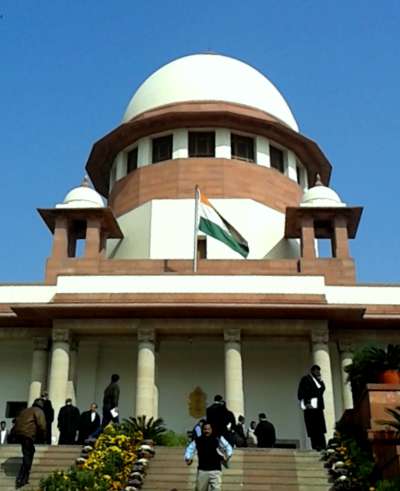New Delhi, May 9: The report of a parliamentary committee can be relied upon in courts for interpretation of statutory provisions wherever necessary, the Supreme Court Wednesday said while making it clear that its findings cannot be questioned or challenged in a court of law.
A five-judge constitution bench headed by Chief Justice Dipak Misra said that courts can take notice of parliamentary standing committee reports, which are admissible under the Evidence Act.
“Parliamentary Standing Committee report can be taken aid of for the purpose of interpretation of a statutory provision wherever it is so necessary and also it can be taken note of as existence of a historical fact. Judicial notice can be taken of the Parliamentary Standing Committee report under Section 57(4) of the Evidence Act and it is admissible under Section 74 of the said Act.
“In a litigation filed either under Article 32 or Article 136 of the Constitution, this Court can take on record the report of Parliamentary Standing Committee. However, the report cannot be impinged or challenged in a court of law,” the bench also comprising Justices A K Sikri, A M Khanwilkar, D Y Chandrachud and Ashok Bhushan said.
The 338-page verdict was delivered on the PILs which had initially raised the issue of untimely death of some young girls in 2008 in Andhra Pradesh due to alleged administration of cervical cancer vaccines and the grant of compensation to their families.
The petitioners, seeking compensation for the victims’ families, had relied on the 81st Report of Parliamentary Standing Committee of December 22, 2014, which had allegedly indicted some pharma firms for conducting trials of the controversial Human Papilloma Virus (HPV) vaccine.
The matter was later referred to a five-judge constitution bench to determine whether a parliamentary standing committee’s report can be relied upon during the judicial proceeding and can its veracity be questioned. Giving its findings on the matter, the five-judge bench held that the admission of parliamentary standing committee reports as evidence does not amount to breach of parliamentary privilege.
“All references to parliamentary proceedings and materials do not amount to breach of privilege to invite contempt of Parliament. When a party relies on any fact stated in the report as the matter of noticing an event or history, no exception can be taken on reliance on such report. “However, no party can be allowed to ‘question’ or ‘impeach’ a report of Parliamentary Committee. The parliamentary privilege that it shall not be impeached or questioned outside Parliament shall equally apply both to a party who files claim in the court and the other who objects to it. Both parties cannot impeach or question the report,” the bench said.
PTI
